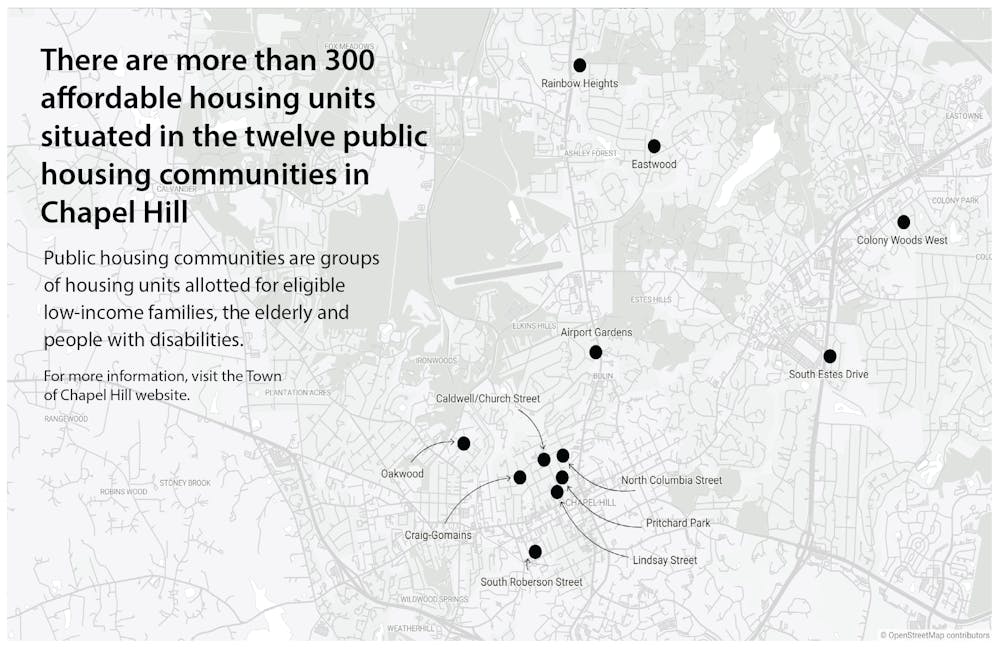The Town of Chapel Hill operates more than 300 Town-owned affordable housing units for low-income residents in both Chapel Hill and Carrboro. These units are administrated through the Chapel Hill Department of Public Housing and include single units, duplexes, triplexes and row housing complexes.
Sarah Viñas, director of affordable housing and community connections for the Town of Chapel Hill, said it is unique that the Town owns and operates public housing.
The Town's public housing locations in Chapel Hill are Airport Gardens, South Estes Drive, Rainbow Heights, Colony Woods West, Pritchard Park, Eastwood, North Columbia Street and Caldwell/Church Street. Its Carrboro locations are Craig-Gomains, Lindsay Street, South Roberson Street and Oakwood.
According to the Department of Public Housing’s Admissions and Continued Occupancy Policy, to qualify for the Town’s public housing programs, applicants must earn below 80 percent of the Area Median Income, be elderly, unhoused or living with a disability — among other things. Currently, the qualifying AMI for a four-person family in the Chapel Hill-Durham metropolitan area is $76,400.
“Our public housing department accepts applications directly from residents and they have a process in place that’s consistent with federal government requirements,” Viñas said.
The Department of Public Housing operates two programs to support the economic literacy and development of its residents: the Community Service & Self Sufficiency Program (CSSSP) and the Transitional Housing Program.
Individuals living in public housing who are over the age of 18 and work for less than 20 hours a week must participate in the CSSSP. It requires that public housing residents must perform eight hours of community service or activities that "encourage, assist, train or facilitate economic independence" a month. Elderly individuals and people with disabilities are exempt from this requirement.
Though the Department of Public Housing provides multiple options for low-income individuals searching for housing, Chapel Hill is currently in a deficit of more than 5,000 affordable homes, according to Chapel Hill Affordable Housing’s most recent quarterly report.
“What we are focused on, working together with our community partners, is we’ve established a strong pipeline of units to slowly chip away at (the deficit),” Viñas said.




